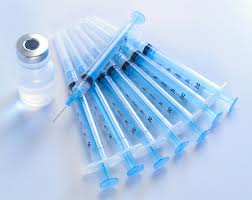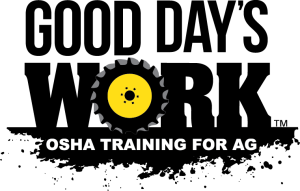Important components of ag safety are knowledge and information. Knowing the pharmaceuticals being used on your farm today and knowing how to administer them is key to protecting farm workers, animals, consumers and environment. Today's medicines and chemicals are safer but only if the label instructions and manufacturer recommended safety precautions are followed.
Needlestick Prevention
Needlestick injuries are wounds caused by needles that accidently puncture the skin. Though needlestick injuries are usually minor, they can be serious. They can cause skin infections, allergic reactions and deep tissue wounds. With certain precautions, you can prevent needlestick injuries. Some key actions you can take are to slow down, restrain animals properly, use proper equipment and get help from coworkers when needed.
A few rules to follow are; don’t cap or uncap needles with your mouth, don’t put syringes in your mouth to help carry them from place to place and don’t put syringes or needles in your pockets. Nearly half of needlestick injuries come after the injection. Keep an approved sharps container close by and discard used needles right away. You can eliminate sticks from recapping the needles by disposing the needles directly. However, if you do need to recap a needle, lay the cap down on a level surface and use the scoop method of recapping.
Restraint of Animals
Before you get started, take time out to review how you plan to restrain the animal. Many injuries are the result of inadequate design of the structures used to confine and restrain the animal. If you have a less than ideal restraint facility, be aware of your surroundings and look for slip, trip and fall hazards. Though there are times when appropriate facilities to restrain an animal are not available, in these situations be sure to ask for help. Properly restraining protects you, your coworkers and the animal from injury.
When You Get Stuck
If you ever get stuck by a needle:
- Stop what you are doing
- Wash the skin with soap and water immediately
- Notify supervisor and if needed your health care provider
- Observe the exposed area for an inflammatory reaction
- If the drug is known for “human toxicity” call your local poison control center immediately
Anyone routinely giving injections should have a current tetanus immunization. Be sure you are familiar with type of medication you are working with by reading the label or safety data sheets (SDS).
It is important that all people involved in medicating animals have proper training and supervision to make the workplace safe.


